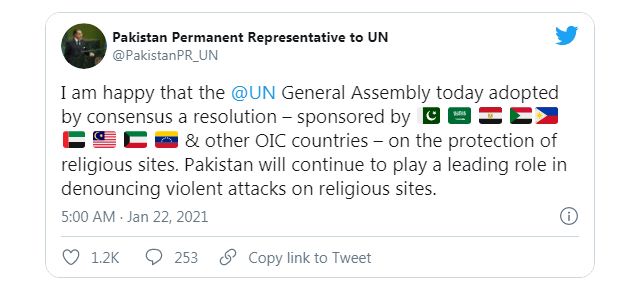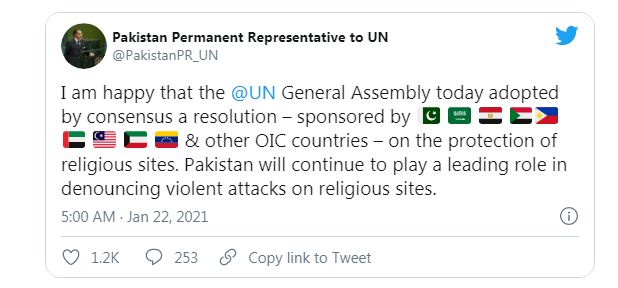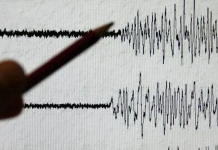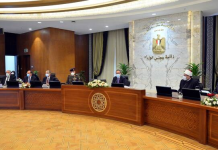Pakistan and India sparred on Friday at the United Nations General Assembly (UNGA) over the situation of minority rights in each other’s countries as the assembly adopted a resolution, co-sponsored by Pakistan, condemning damage and destruction of religious sites.
Rejecting what were termed India’s “unwarranted assertions” on the burning down of a Hindu shrine in Khyber Pakhtunkhwa’s Karak tehsil last month, Pakistani delegate Zulqarnain Chheena said India should set its own house in order rather than feigning concern for minority rights elsewhere.
“This is not the first time India has tried to feign concern for minority rights elsewhere while being the most egregious and persistent violator of minority rights itself,” he added.
The resolution was proposed by Saudi Arabia and co-sponsored by other Arab nations including Egypt, Iraq, Jordan, Kuwait, Yemen, Bahrain, Sudan, Oman, the United Arab Emirates and Palestine, which is recognised as a non-member observer state by the United Nations.
Bangladesh, Central African Republic, Equatorial Guinea, Mauritania, Morocco, Nigeria, Pakistan, the Philippines and Venezuela were also co-sponsors.
Speaking during the assembly, however, India’s representative said it was “ironic” that Pakistan was one of the co-sponsors of the resolution, alleging that the attack on the Karak shrine was carried out with the “explicit support” of law enforcement agencies.
“The resolution cannot be smokescreen for countries like Pakistan to hide behind,” India Today quoted the Indian delegate as saying.
Exercising his right of reply, Chheena said: “The clear difference between India and Pakistan with respect to minority rights can be gauged from the fact that the accused in the Karak incident were immediately arrested, orders were issued for repairing the temple, the highest level of judiciary took immediate notice, and the senior political leadership condemned the incident.
“Whereas in India, blatant acts of discrimination against Muslims and other minorities take place with state complicity.”
In this regard, the Pakistani delegate cited the discriminatory Citizenship Amendment Act, the National Register of Citizens, the 2002 Gujarat massacre, the 2020 Delhi pogrom, the 1992 demolition of Babri Mosque and acquittal of the accused in 2020, blaming of Muslims for spreading coronavirus, raising the bogey of ‘love jihad’, cow vigilantism and terming West Bengal Muslims “termites”, extra-judicial killings of innocent Kashmiris and blatant attempts to turn Muslims into a minority in occupied Kashmir.
“The RSS-BJP regime’s record is replete with instances of gross and systemic violations of the rights of minorities, in particular Muslims,” the Pakistani delegate said.
“The Indian leadership is yet to condemn the perpetrators of the Delhi massacre in February 2020 let alone bring those criminals to justice.
“As a perennial purveyor of state-sponsored discrimination against its minorities, India is in no position to pontificate on the issue of minority rights elsewhere,” Chheena told the Assembly.
Meanwhile, Pakistan’s Permanent Representative to the UN Munir Akram said: “Pakistan will continue to play a leading role in denouncing violent attacks on religious sites.”
The resolution condemns the “increasing targeting of cultural property, including religious sites and ritual objects […] by terrorist attacks and outlawed militias, often resulting in destruction as well as theft and illicit trafficking of stolen items”.
It strongly deplores “all attacks on and in religious places, sites and shrines […] including any deliberate destruction of relics and monuments which violate international law”.
And it condemns all threats to attack, damage or destroy religious sites, and denounces any moves to obliterate or forcibly convert any religious sites.
The resolution was supported by the United States and the European Union and adopted by consensus, with UNGA President Volkan Bozkir declaring: “It is so decided.”
The resolution notes that the right to freedom of thought, conscience and religion are enshrined in the UN Charter and the Universal Declaration of Human Rights and that previous international efforts also focused on preventing the desecration of religious sites.
“Religious sites are representative of the history, social fabric and traditions of people in every country and community all over the world and should be fully respected as such,” the resolution says.
It reaffirms that addressing the destruction of tangible and intangible cultural heritage needs to be holistic, encompassing all regions. It must also contemplate both prevention and accountability, focusing on acts by state and non-state actors in both conflict and non-conflict situations, and terrorist acts.


















